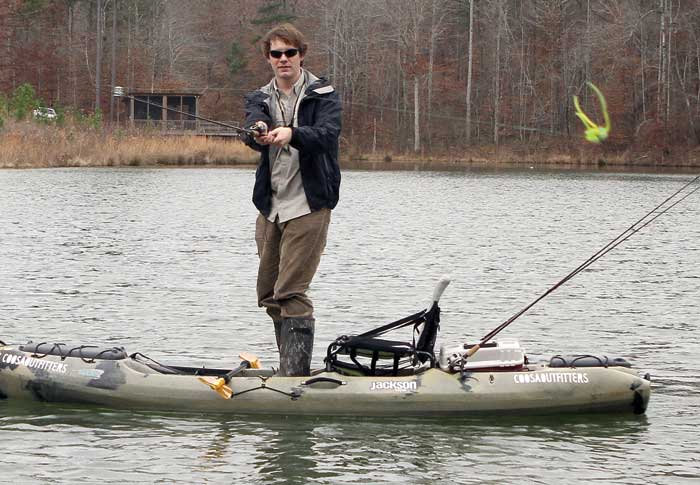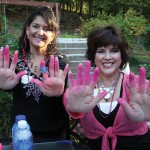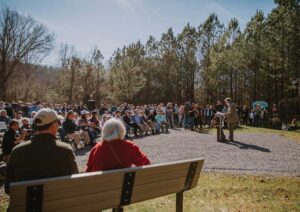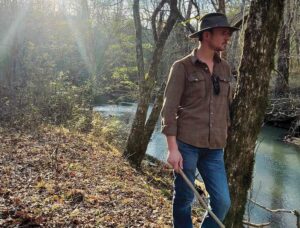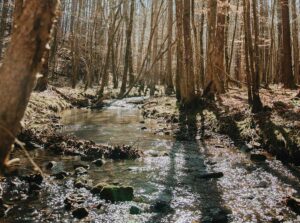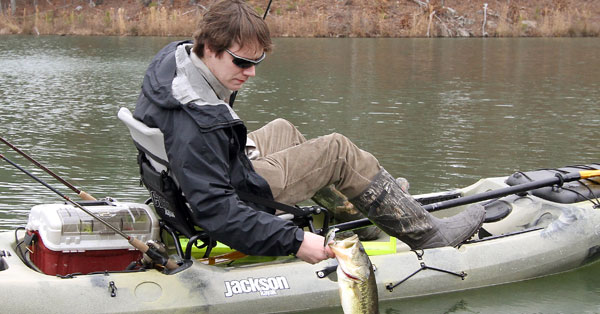
Kayak fishing making a splash
at Neely Henry & Logan Martin lakes
Story by Loyd McIntosh
Photos by Jerry Martin
Spring time in St. Clair County: fresh air, blue skies, green grass and, of course, fishing — lots and lots of fishing. By the time the ol’ groundhog’s predictions have taken root, there will be – excuse the pun – a boatload of fishing tournaments on and around Neely Henry and Logan Martin lakes.
That also means hundreds of noisy bass boats, speed boats and other motorized watercraft making waves all in an attempt to sneak up on the legions of fish that call the Coosa River and its lakes home. Fishing is as ingrained in who we are in these parts as barbecue and football are.
But a new way of angling is making its way from salt water to fresh water. It began off the California coast around 15 years ago, and now kayak fishing is heading to fresh water fishing hotspots around St. Clair County.
Kayak fishing is on the rise with a growing community of anglers spreading the gospel of the sport as an alternative to traditional fishing. Interested to see it or to try kayak fishing out for yourself? Then clear your schedule and plan to compete in the Coosa Canoe and Kayak Fishing Tournament, organized by the non-profit group, Coosa Riverkeeper.
Frank Chitwood, Riverkeeper and chief watchdog for Coosa Riverkeeper, hopes his organization’s efforts will ensure a healthier Coosa River and surrounding waterways for future generations. “Coosa Riverkeeper is a citizen group advocating on behalf of the Coosa River for clean water,” explains Chitwood. “We stand up to polluters and the government when their actions are not in the best interest of clean water and a healthy river.”
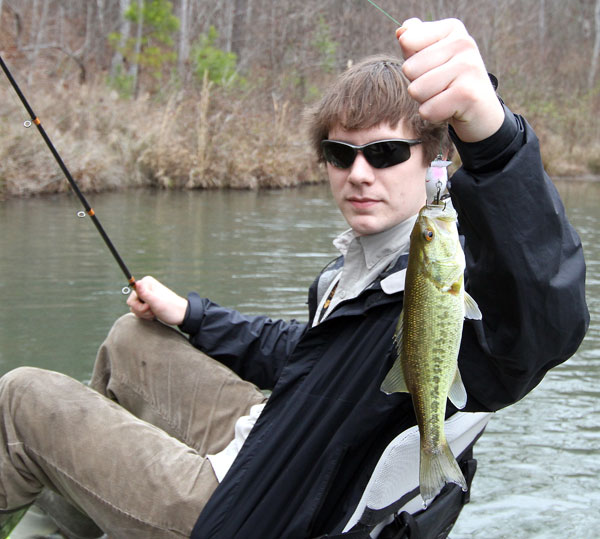 The Coosa Canoe and Kayak Fishing Tournament is a charitable event to raise money and awareness of issues facing the Coosa River through an innovative three-stage tournament. Proceeds from the tournament will go toward helping the Coosa Riverkeeper fulfill its vision of a fishable, swimmable, drinkable Coosa River.
The Coosa Canoe and Kayak Fishing Tournament is a charitable event to raise money and awareness of issues facing the Coosa River through an innovative three-stage tournament. Proceeds from the tournament will go toward helping the Coosa Riverkeeper fulfill its vision of a fishable, swimmable, drinkable Coosa River.
The first stage, Lake Neely Henry Open, is scheduled to begin at first safe light on Saturday, March 30, and for many in observance, this will be the first time to see some of the tournament’s interesting rules. For instance, competitors are allowed to drive to any spot they wish within the tournament boundaries to put their kayaks in the water. There are also no live wells and no weigh-ins, keeping the negative impact on the fish to a minimum.
“You don’t actually keep the fish,” Chitwood explains. “You put them right back after you catch them, so we call it a virtual stringer because it only exists on your camera.” Tournament scoring is based on length, which Chitwood says is just as fair a competitive measure as other tournaments that are weight-based.
At the beginning of each tournament, every competitor is given a special fish ruler, and once an angler reels in a catch, he or she places the fish in the trough-like ruler and then takes a photo of the fish on a digital camera or cell phone camera. At the end of the day, anglers arrive with a “digital stringer” instead of live fish they may have kept in a live well for several hours. “So, generally it takes a minute or two to do all that once you reel it in, take a picture or two of it and put it back in the water where it came from as opposed to a bass tournament, where they might give you a poorly ventilated live well where the fish stay for several hours,” he says.
Chitwood says this method is less stressful on the black bass varieties – primarily large mouth and spotted bass – that are allowed during a Coosa Riverkeeper tournament. The goal, Chitwood says, is to create an alternative to traditional fishing tournaments by keeping mortality rates low and, thus, a healthier Coosa River ecosystem. At a poorly run tournament, in the middle of a hot summer’s day with poor live well conditions, fish mortality can be high, Chitwood says. “At kayak fishing tournaments, we keep fish mortality rates really low. Almost all of them will survive and become larger bass.”
The first two stages of the three-stage tournament – the Lake Neely Henry Open in March and the Logan Martin Open in June – are each one-day, three-fish-limit tournaments where only the three biggest fish are counted. “That way it gives people who catch a larger quantity of fish an advantage, but not so much that you can just go out and catch a bunch of little ones. Good combination of quantity versus quality.”
The final tournament of the year is the Coosa Classic, a two-day event Oct. 26-27 at the Coosa Outdoor Center in Wetumpka and is a four-fish stringer, with only the two biggest fish from each day counted for the final score. The Coosa Classic is the final event, where the Blackjack Lands Angler of the Year will be crowned at the end of the tournament. The grand prize is a Primo ceramic grill, donated by Blackjack Lands.
To learn more about kayak fishing, Coosa Riverkeepers or to register for the Coosa Canoe and Kayak Fishing Tournament, go online at www.coosakayakfishing.com.














